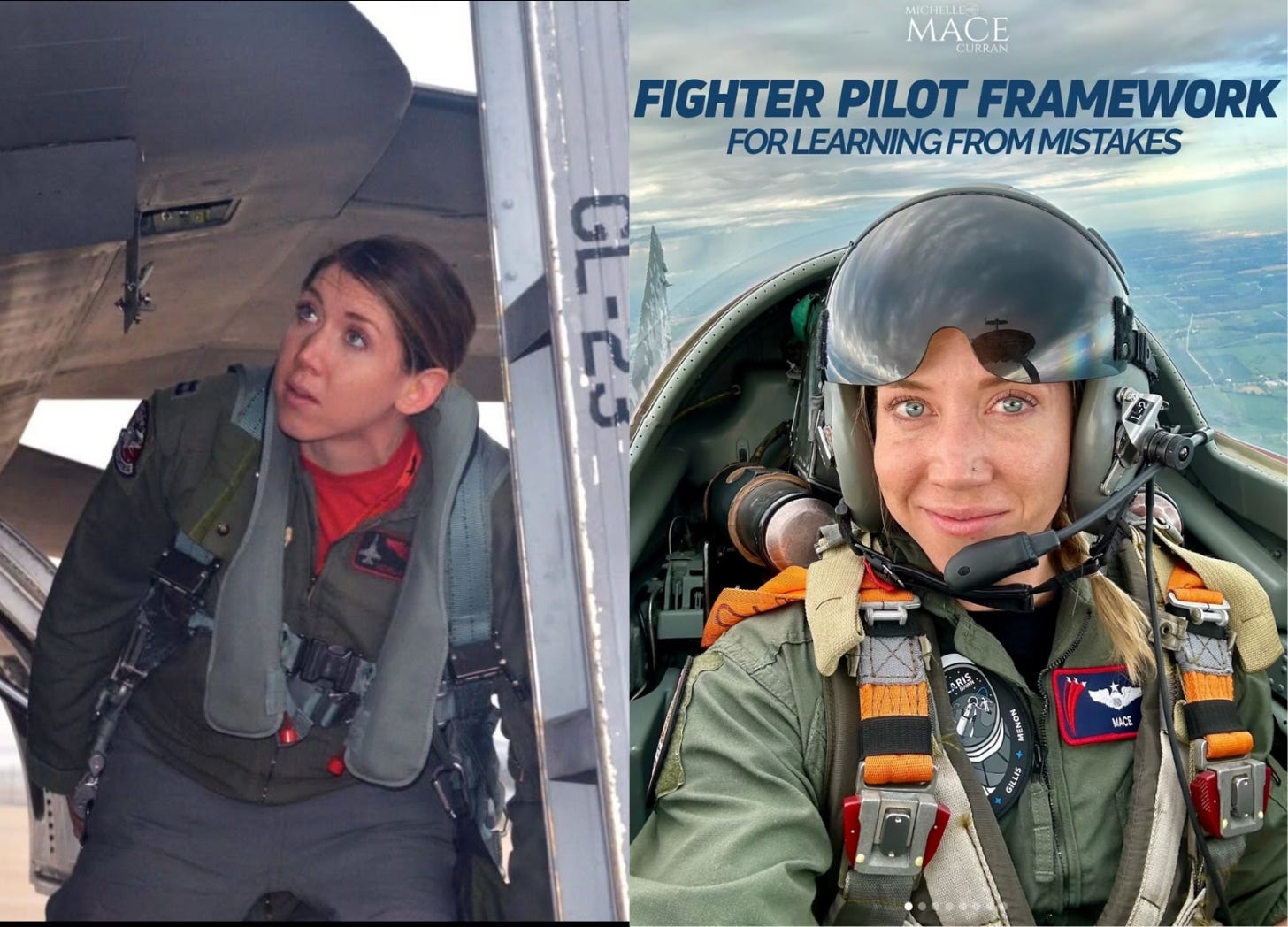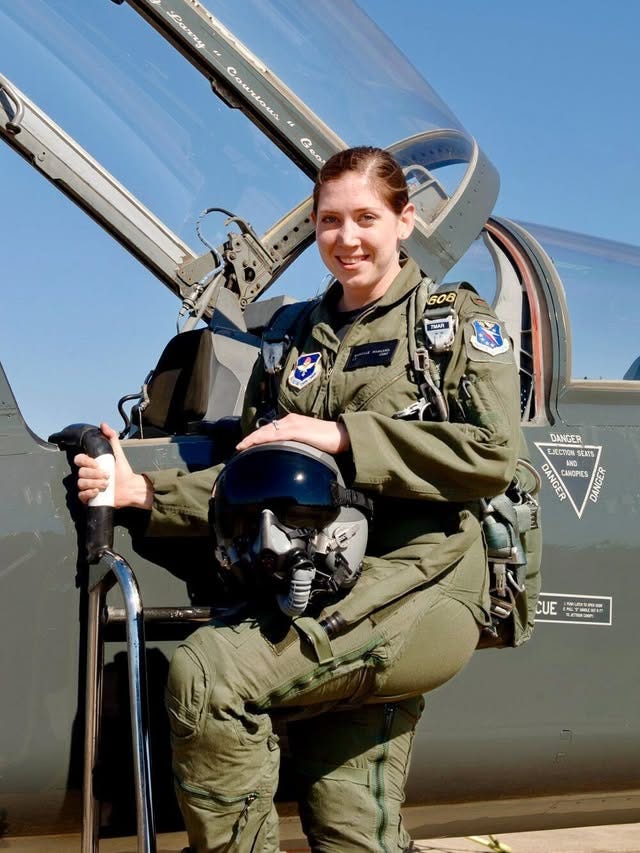What being a fighter pilot taught me about confidence and belonging
Michelle Curran’s journey in the cockpit reveals why confidence starts with small, bold choices
By Michelle Curran, former fighter pilot turned author and speaker
As a high-achieving, competitive kid with perfectionist tendencies, I loved being good at things. That drive led me to become a straight-A student, earn a full college scholarship through Air Force ROTC (the US Air Force Reserve Officer Training Corps) and set my sights on the unlikely goal of becoming a fighter pilot. It almost broke me.
I thrived on my accomplishments. But I was also painfully shy and introverted. I struggled to speak up, to take up space, to risk being seen, and yet I wanted more than anything to be the best.
Despite the odds, I entered Air Force pilot training at 22 with one goal: to earn a fighter jet. A few years later, I had done it. Not only did I graduate, I earned my first choice of airframe: the F-16. I was soon stationed in Misawa, Japan, drinking from the proverbial firehose as a young pilot, learning how to operate that jet tactically.
I had achieved my dream. But inside, I was crumbling.
After a mistake in the jet early in that assignment, one that could have had catastrophic consequences, I spiraled into intense self-doubt and imposter syndrome. I had made it through one of the most grueling pipelines in aviation, but no one had prepared me for the invisible battle of belonging.
There’s a natural amount of doubt that comes with being new at something hard. But this wasn’t that. It was deeper. More personal. At the time, only about 2% of fighter pilots were women. Most of the time, I was the only one in the room.
That fact, combined with the work-hard-play-hard culture of combat units, meant I regularly found myself in awkward, and sometimes exhausting, situations.
Someone made an inappropriate joke? Every head turned to me to see how I would react.
I struggled with a skill in the jet? I feared it would create a new stereotype for all women.
The scrutiny felt like lead weight on top of an already crushing learning curve. I call that phase of my career “playing dress-up.” That hypervigilance of self-editing in an environment not built for you.
Related Articles
Eventually, I realized something: not showing up as myself wasn’t helping me belong, it was sabotaging it. In our world, mistakes had consequences. Trust was everything. And you can’t build real trust if you’re pretending.
So I stopped.
I stopped pretending I thought the jokes were funny. I stopped saying I cared about fantasy football. I started being honest, even when it felt risky.
And you know what? I wasn’t pushed out, I was pulled in. My teammates started asking about what I did care about. I began to trust myself. I became a better pilot. And, finally, I belonged, not because I’d blended in, but because I’d shown up.
What did combat flying teach me about confidence and belonging?
Stop dressing up and start showing up.
It feels uncomfortable, but it’s essential if you want to rise to your full potential.Action comes before confidence.
Make small, bold choices. Every one builds self-trust, and that becomes confidence.Belonging starts with you.
You can’t expect others to trust someone you’re not willing to be.
Today, I help others flip fear into fuel, not because I’ve mastered it, but because I know the fight is worth it. Whether you’re flying combat jets or speaking up in a meeting, confidence isn’t about having it all together. It’s about being willing to do it anyway.







'small, bold choices' I love that -- it's where confidence starts and real change begins